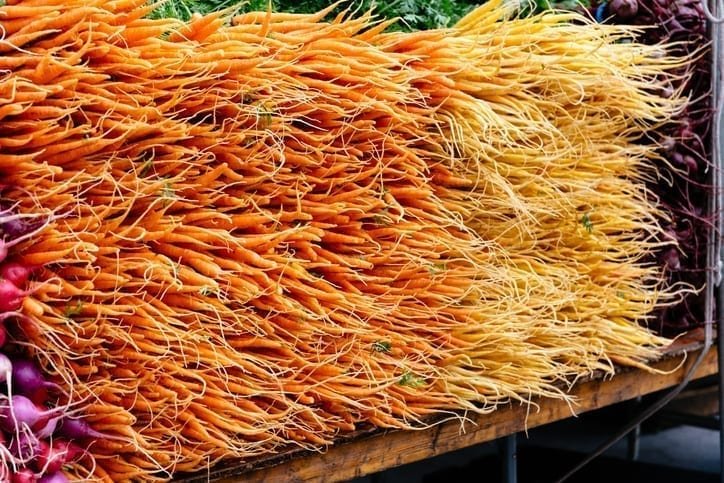Research by WRAP has helped to generate the most reliable estimate to date for total farm food surplus and food waste. It assesses the core categories of vegetables, fruit, cereal crops, dairy and livestock.
WRAP says the insights into the scale of surplus and food waste on UK farms will help drive forward work on their root causes at a key stage in the supply chain, and help more food reach its intended market.
The extensive literature review covers the moment when a food crop is ready to harvest, or an animal to be slaughtered, and assesses surplus and waste arising from processes such as grading, packing and washing – as well as customer rejections.
WRAP estimates that total UK food surplus and waste in primary production stands at 3.6 million tonnes per annum, or 7.2% of production. The market value of this food is in the region of £1.2 billion.
The estimates show the scale of the situation based on 2017 data; the organisation is now working to acquire more data directly from producers to refine its findings and help direct future action.
Wasted food
WRAP estimates that food waste accounts for 1.6 million tonnes of the total figure, or around 3% of production, with a market value of around £650 million.
Sugar beet, potatoes and carrots made up more than half of the overall waste by weight, with the top 10 products accounting for 80% of the total weight. When grouped by product type, horticultural crops make up 54% of the total, cereals 30%, livestock 8% and milk 8%.
A significant factor is also the percentage of a crop that becomes waste. For example, of the top 20 foods listed milk has the highest total production by weight at nearly 15 million tonnes. In this case, 116,000 tonnes of milk waste arose, representing 0.8% of total production. In contrast, for lettuces the percentage of waste is nearly 25% of total production (104,000 tonnes).
Surplus food comprises those products that are not sold for human consumption as intended, but which are instead used as livestock feed, redistributed to charities or may become bio-based materials such as colorants. The amount of surplus food is estimated to be an additional 2.0 million tonnes per annum, or 4% of production, with a market value of more than £500 million.
‘This is the most detailed study of food surplus and waste in primary production undertaken for the UK, and a key finding has been the range of waste across all food categories. This tells us is there is huge potential to reduce the amount of surplus and waste by promoting best practice, and that’s where our work is now focussed. We want to increase redistribution of surplus food as has happened across the retail sector, and I am pleased this will now be much easier through the Food Surplus Network.
‘Given the scale and challenge of gathering data from the sector, we are calling on businesses and researchers to share their insights with us through our collaborative data sharing platform. This provides a simple way to share data with WRAP, which can be combined into a living evidence base. This will help bring more clarity to an issue that is happening around the globe.’
PETER MADDOX
Director at WRAP
 Play Video about This Rock Might Just Save The World
Play Video about This Rock Might Just Save The World Play Video about Play 2 hours of rock
Play Video about Play 2 hours of rock Play Video about Play 2 hours of brook
Play Video about Play 2 hours of brook Play Video about Play 2 hours of sheep
Play Video about Play 2 hours of sheep











































